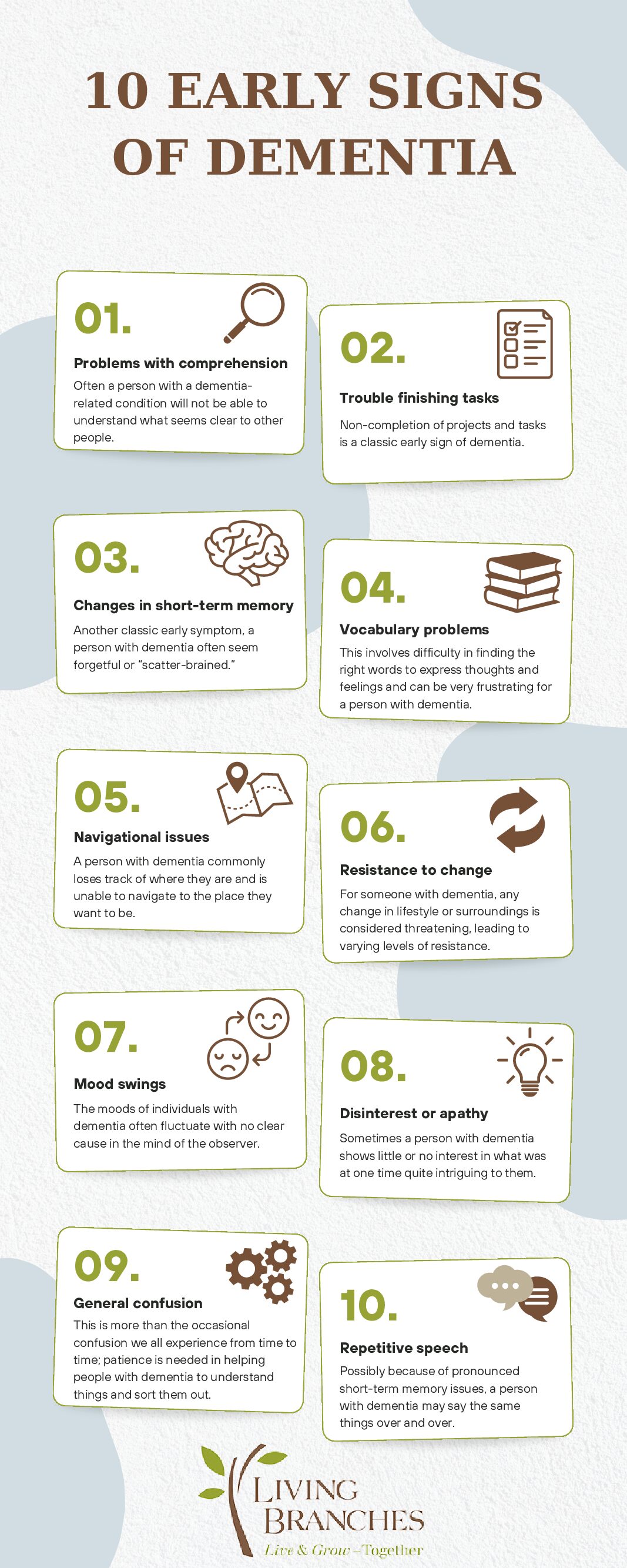Providing senior memory care for individuals with Alzheimer’s disease and other forms of dementia isn’t an easy task, but caregivers can make the process much more effective and beneficial by knowing a few things about this condition.
10 Early Signs of Dementia

Boomtown Devs
What Can Happen In The Early Stages Of Dementia?
Here are some early signs of dementia you might notice in a friend or loved one. Note that “early” normally means “less-pronounced.” All of these behaviors can intensify as the illness progresses.

- Problems with comprehension: often a person with a dementia-related condition will not be able to understand what seems clear to other people.
- Trouble finishing tasks: non-completion of projects and tasks is a classic early sign of dementia.
- Changes in short-term memory: another classic early symptom, dementia patients often seem forgetful or “scatter-brained.”
- Vocabulary problems: this involves difficulty in finding the right words to express thoughts and feelings and can be very frustrating for the patient.
- Navigational issues: people with dementia commonly lose track of where they are and are unable to navigate to the place they want to be.
- Resistance to change: for some patients, any change in lifestyle or surroundings is considered threatening, leading to varying levels of resistance.
- Mood swings: the moods of individuals with dementia often fluctuate with no clear precursor in the mind of the observer.
- Disinterest or apathy: sometimes patients show little or no interest in what was at one time quite intriguing to them.
- General confusion: this is more than the occasional confusion we all experience from time to time; patience is needed in helping people with dementia to understand things and sort them out.
- Repetitive speech: possibly because of pronounced short-term memory issues, patients may say the same things over and over.
Living With Dementia? Give your loved one the best care
While the above characteristics can be difficult to deal with at times, caregivers will have an easier experience if they remember to take things slow and easy and always exercise patience. A person with Alzheimer’s disease or another dementia-related condition is running at a slower pace than “healthy” individuals and needs more time and guidance to do many of the things the rest of us take for granted. Gentle encouragement and understanding are the keys to good care.
All caregivers – whether family members in the patient’s home or experienced staff at a Memory Care community – can make a difference in the lives of dementia patients by having empathy for the person and letting him or her dictate the pace of mental and physical tasks.
Living Branches offer residential care programs for individuals with dementia-related conditions. We provide 24-hour care and expert staff for our residents in various locations in southeast Pennsylvania.
If you have concerns about providing senior memory care services for a family member, please call Living Branches at 215-368-4438.
